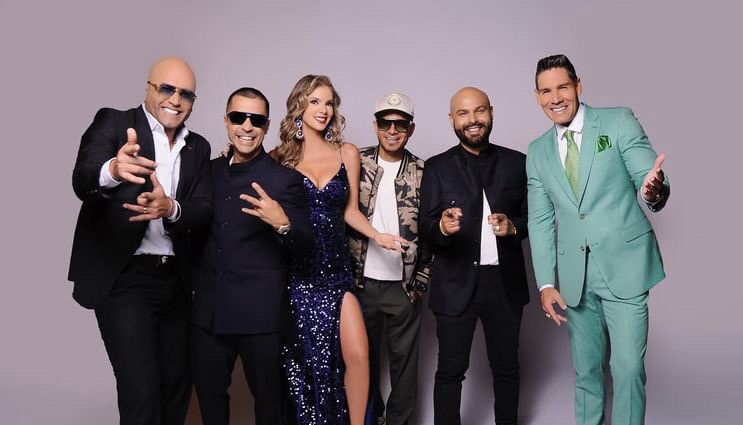What’s the role of music in 2024’s elections around the world?
In Venezuela’s latest reality show, contestants are pulling out all the stops. In front of a panel of five judges, singers perform before flashing LED lights, enthusiastic back-up dancers and passionate instrumentalists. Their impassioned performances have a singular aim – to impress the man whose infamous name is called out by the chorus as a participant salsa dances across the stage: “Maduro”.
Once per week, Venezuelan state TV broadcasts Factor M, a programme in the style of The X Factor. The show’s purpose: to choose the song for current president Nicholás Maduro’s upcoming election campaign. The first episode aired in April, and the final one is scheduled to take place shortly before campaigning starts in June.
Maduro is widely regarded as a dictator who oversees rigged elections to remain in power. His human rights abuses and the soaring inflation caused by his mismanagement prompted one of the worst refugee crises of recent times when hundreds of thousands of people fled across Venezuela’s borders in 2019. However, their struggle is overshadowed as Factor M places Maduro in the spotlight.
One of the competition’s judges, reggaeton and salsa artist Xuxo, has been writing music to back Maduro since 2017. To him, it’s necessary for galvanising voters.
“Including music in political campaigns is very important,” says Xuxo, one of many in Venezuelan society who does not criticise Maduro, “because music moves the masses. With music that’s well made, messages are able to be passed on to the people quickly. People are able to get motivated, enjoy the music, dance to the music and people get inspired to do things through music.”

Courtesy of Xuxo
While Venezuela devoting an entire TV show to finding the perfect campaign song is a global first, music is a key feature of 2024’s elections across continents. From India to South Africa to the United States, major political parties have been making use of mainstream popular tunes as well as original songs.
According to Dr Adam Behr, senior lecturer in contemporary and popular music at Newcastle University, the purpose of music during election periods is complex.
“What it does do is two things,” he explains. “If it’s successful, it can sort of buoy up both the supporters but also the campaigners: not just the candidates themselves – people that are working for them. There’s a sort of nexus of influences.”
When UK Conservative prime minister Rishi Sunak recently announced the upcoming general election, pro-EU campaigner Steve Bray made a political point by blasting the D:Ream song “Things Can Only Get Better” – a song widely associated with Tony Blair’s landslide Labour victory in 1997.
Behr also emphasises that music as a campaign tactic is a historic one, particularly in the context of the United States. “Campaign songs go way back to the beginning of American democracy. There are campaign songs about George Washington and onwards really.”
Behr identifies jazz singer Al Jolson’s song “You’re the Man for Us”, endorsing Republican candidate Warren Harding, as a watershed in political music. Since then, many pop songs have enjoyed a second life as the soundtrack to an election – such as with Bill Clinton’s use of Fleetwood Mac’s “Don’t Stop” in the nineties.
When artists’ politics do not align with the candidate using their music, however, it can stir up controversy. After Donald Trump played “Nothing Compares 2 U” by Sinéad O’Connor at a rally in March, her estate asked the former president to stop using her work.
Campaign music has also proved contentious in Indian elections. “Hamare Modi Ji”, one of over 150 songs written to promote the incumbent Narandra Modi’s Bharatiya Janata Party, caused a spat on Twitter/X when opponents to the party started replacing “Modi” with “Feku”, a derogatory Hindi word for someone who makes empty promises.

Courtesy of Haripriyaa Bharggav
Haripriyaa Bharggav, who wrote the song, regards this online flare-up as “an unfortunate event that stems from a lack of understanding and respect for differing political perspectives”.
There’s certainly no room for different viewpoints on Factor M. With the final taking place this month, Xuxo wants a contestant with genuine support for Maduro. It seems that while music can be a powerful mode of political expression, it can also pay to sing a certain song.
Feature Image: Xoxo (second from left) with the other Factor M judges and the show’s presenter. Photo credit: Xuxo

